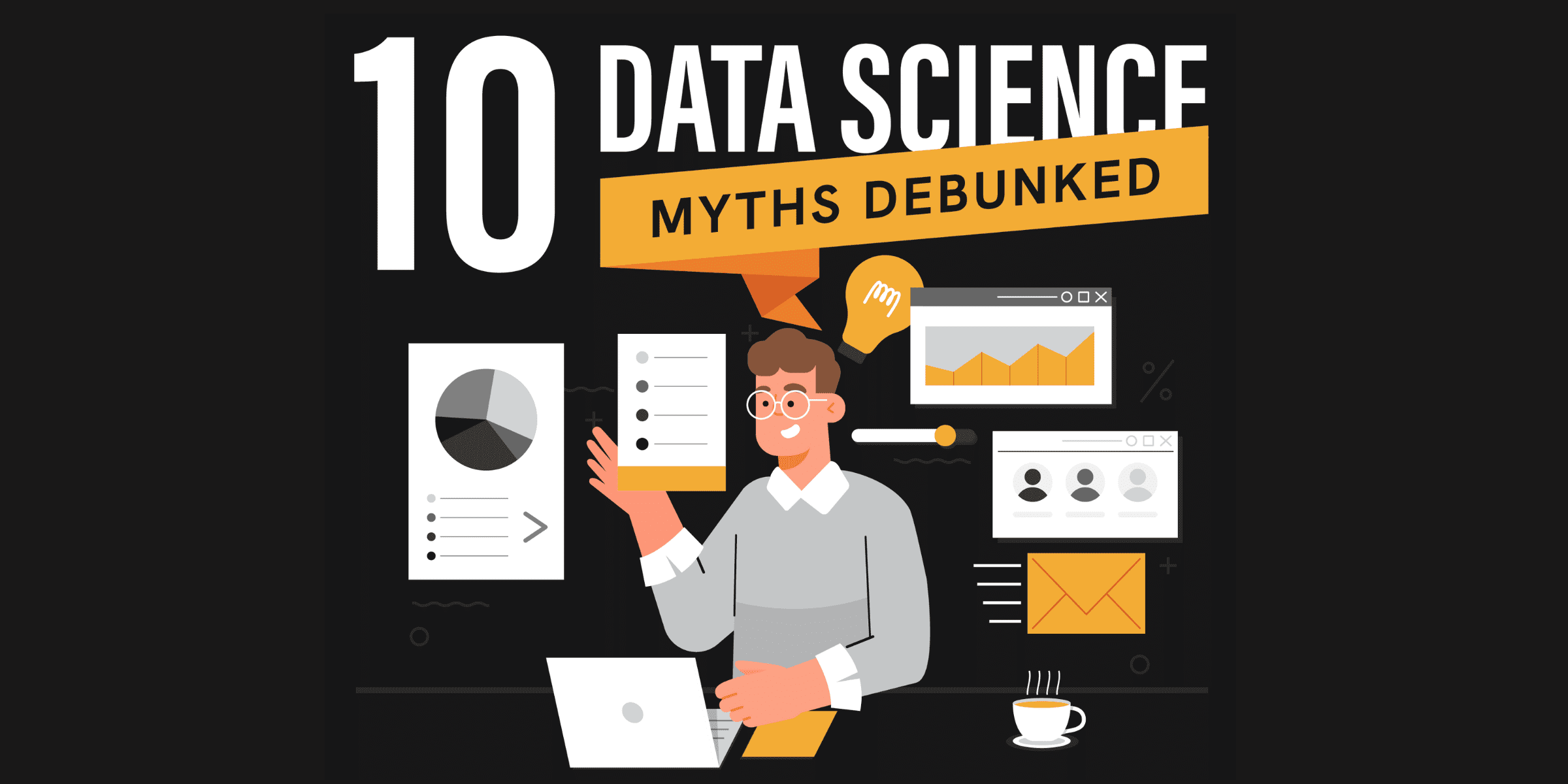Over the years, data science has transformed from a specialized niche into a critical field driving innovation, insights, and data-driven decision-making across industries like technology, healthcare, finance, and retail. Yet, as the field has grown, so have data science myths and misconceptions — often rooted in outdated assumptions or a misunderstanding of the skills, tools, and processes involved in modern data science. These persistent data science myths can do more than create confusion—they can discourage aspiring data scientists and mislead organizations seeking to unlock the power of data-driven insights and predictive analytics.
With so much confusion swirling around what it takes to succeed in data science or how organizations should utilize it, we thought it was time to shine a light on the realities. Our new infographic below — 10 Myths About Data Science Debunked — breaks down some of the most common misconceptions, offering clarity for anyone looking to understand what data science really is, what it takes to succeed, and how organizations can use it effectively. If you’re ready to cut through the noise and see data science in a whole new light, dive into our latest visual guide—and find out what really separates myth from truth.
![10 Data Science Myths Debunked [Infographic]](https://bnsglobalnews.com/wp-content/uploads/2025/01/kdn-data-science-myths-infographic_FINAL.png)
10 Data Science Myths Debunked (click to enlarge)
10 Myths About Data Science Debunked
- You need a PhD to succeed – While advanced degrees can help, practical skills, real-world experience, and curiosity often matter more in data science careers
- Data science is all about coding – Coding is a key skill, but domain knowledge, critical thinking, and communication are equally crucial for success
- AI will replace data scientists – AI tools assist data scientists by automating repetitive tasks, but they still require human oversight and expertise
- More data is always better – Quality of data matters far more than sheer quantity; clean, relevant datasets drive better insights
- Data cleaning isn’t important – Without proper data cleaning, models and analyses are unreliable, making this step essential in any project
- You must be a math genius – A solid grasp of statistics and problem-solving is enough; deep theoretical math is rarely necessary
- Visualization tools replace analysts – Tools like Tableau create visuals, but analysts interpret them and tell the story behind the data
- Deep learning is always best – Simple models often outperform complex ones in terms of interpretability and performance on small datasets
- Data science is just for tech companies – Industries like healthcare, retail, finance, and government increasingly rely on data science for decision-making
- Data science is the same as BI – While BI focuses on historical data and reporting, data science involves predictive modeling and uncovering patterns
As we bring this discussion to a close, we can note that it’s clear just how many misconceptions can cloud our perspective on data science. By debunking some of the most persistent data science myths, we hope this infographic has provided valuable insights into what modern data science careers, tools, and strategies truly entail and how they can benefit organizations in any industry.
Data science may continue to evolve at a rapid pace, but one constant remains: it thrives on the rigorous examination of facts rather than hearsay. Embracing that spirit ensures that both individuals and businesses can harness the full potential of data-driven problem solving. With this in mind, let’s continue learning, questioning, and innovating, pushing the boundaries of what data science can achieve.
Matthew Mayo (@mattmayo13) holds a master’s degree in computer science and a graduate diploma in data mining. As managing editor of KDnuggets & Statology, and contributing editor at Machine Learning Mastery, Matthew aims to make complex data science concepts accessible. His professional interests include natural language processing, language models, machine learning algorithms, and exploring emerging AI. He is driven by a mission to democratize knowledge in the data science community. Matthew has been coding since he was 6 years old.
This post was originally published on here







